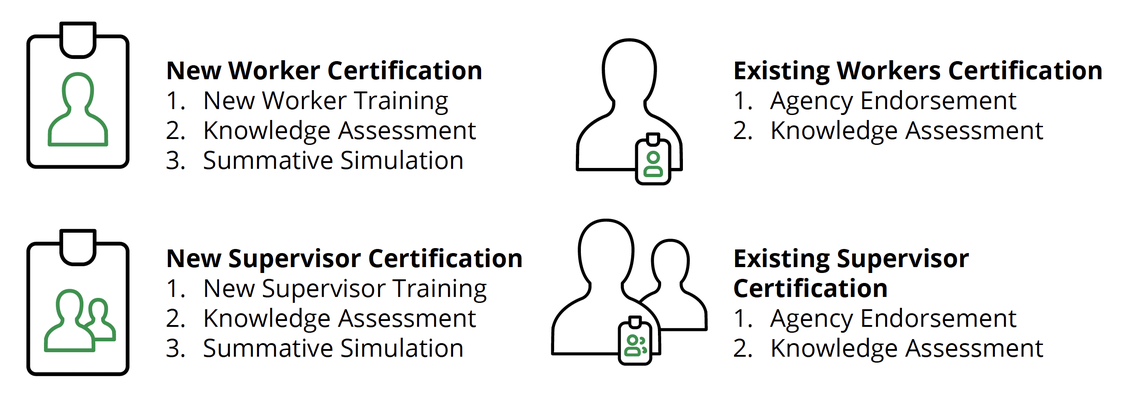Certification
Certification is a formal recognition of professional competency. It enhances credibility, ensures adherence to standards, promotes continuous professional development, and ultimately provides assurance that child welfare professionals possess the knowledge, skills, and attitudes that ensure the safety, permanency, and well-being of children and families.
Starting in 2026, new workers can earn certification within 12 months of employment by completing New Worker Training, which includes competency-based assessments. Throughout training, counties will be provided with feedback on learners’ progress. During a transitional period, existing workers can obtain certification by passing a knowledge assessment and securing agency endorsement. Certification will then require ongoing recertification through continuing education. A certification process is also being developed for new and existing supervisors.
Certification Pathways

Recertification
Once the certification process is in place, workers and supervisors will need to renew their certification, starting from their initial certification date. Recertification requires 30 hours of continuing education (15 hours per year) through a combination of MNCWTA training and other professional development opportunities.